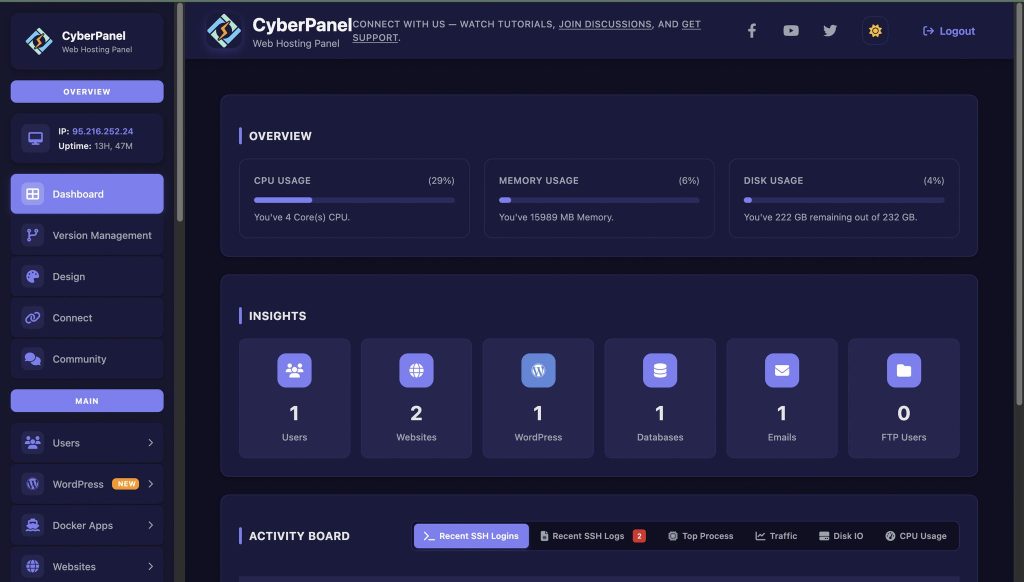Users who operate Linux systems seek browsers that protect their privacy while providing fast performance and seamless integration with open-source platforms. Brave for Linux operates as a Chromium-based browser that protects user privacy through automatic ad and tracker blocking while maintaining high-speed performance.
Brave Browser Linux supports all major Linux distributions, including Ubuntu and Fedora and Debian, and Arch, through its built-in security features and wallet integration, and cross-platform data synchronization. The following guide shows users how to install Brave Browser Linux while demonstrating its essential features for daily browsing and development work.
What is Brave for Linux?
Brave for Linux represents the Linux edition of the Brave web browser. The browser uses Chromium as its foundation to eliminate all intrusive ads and tracking scripts, which cause performance delays. The browser includes built-in privacy features and automatic HTTPS encryption, and users can activate Brave Rewards and Brave Wallet as optional features.
The browser has gained widespread adoption among Linux users who need both fast performance and strong privacy protection.
How to Install the Brave Browser on Linux Quickly?
The installation procedure for Brave Linux differs between Linux distributions. The following instructions demonstrate the best method to install Brave Linux on systems running Debian and Ubuntu and their derivative distributions.
sudo apt install curl
sudo curl -fsSLo /usr/share/keyrings/brave-browser-archive-keyring.gpg https://brave-browser-apt-release.s3.brave.com/brave-browser-archive-keyring.gpg
echo "deb [signed-by=/usr/share/keyrings/brave-browser-archive-keyring.gpg] https://brave-browser-apt-release.s3.brave.com/ stable main" | sudo tee /etc/apt/sources.list.d/brave-browser-release.list
sudo apt update
sudo apt install brave-browser
For Fedora or CentOS:
Get exclusive access to all things tech-savvy, and be the first to receive
the latest updates directly in your inbox.
sudo dnf install dnf-plugins-core
sudo dnf config-manager --add-repo https://brave-browser-rpm-release.s3.brave.com/x86_64/
sudo rpm --import https://brave-browser-rpm-release.s3.brave.com/brave-core.asc
sudo dnf install brave-browser
After installation, you can launch Brave from your applications menu or via terminal:
brave-browser
Why Should You Choose Brave Browser on Linux?
| Feature | Brave Browser Linux Advantage |
|---|---|
| Privacy by Default | Blocks ads, trackers, fingerprinting, and cookies automatically. |
| Speed | Loads pages up to 3× faster by removing unnecessary scripts. |
| Security | Upgrades connections to HTTPS and isolates third-party content. |
| Crypto & Wallet | Integrated crypto wallet and Brave Rewards system for optional earnings. |
| Open-Source Friendly | Actively maintained for multiple Linux distributions with easy package management. |
How to Keep Your Brave for Linux Up to Date?
Brave updates are distributed through your system’s package manager. Once you have added the Brave repository:
sudo apt update && sudo apt upgrade
Or
sudo dnf upgrade brave-browser
The Function of CyberPanel

Suppose you’re managing your servers through CyberPanel, your web hosting control panel, and you’re a Linux user. In that case, Brave can be simply installed on your local desktops. So, you can access CyberPanel’s secure dashboard, view services, and perform administrative activities with some added privacy. Brave’s shields will add additional protection for you to access your server panels.
Final Thoughts!
Installing Brave for Linux will give you a privacy-first integrated browser with a fast, secure user experience that can be installed and managed via your system’s package manager. Brave is an excellent choice for Linux, whether you’re a developer, a sys admin, or just someone who wants to browse without being personally compromised. Brave is built for speed as well as strong privacy protections, which makes it ideally suited for Linux environments.
Install Brave for Linux today to enjoy a fast and secure browsing experience without sacrificing privacy!
People Also Ask
Why is Brave different from Chrome on Linux?
Brave is different from Chrome because it removes trackers, blocks ads by default, and focuses on privacy without relying on extensions.
Can Brave for Linux support extensions?
Yes. Brave is Chromium-based, so most of the Chrome extensions work smoothly in Brave.

Is Brave browser available for all Linux distributions?
Yes. Brave officially supports Debian, Ubuntu, Fedora, openSUSE, and provides source builds for others.



